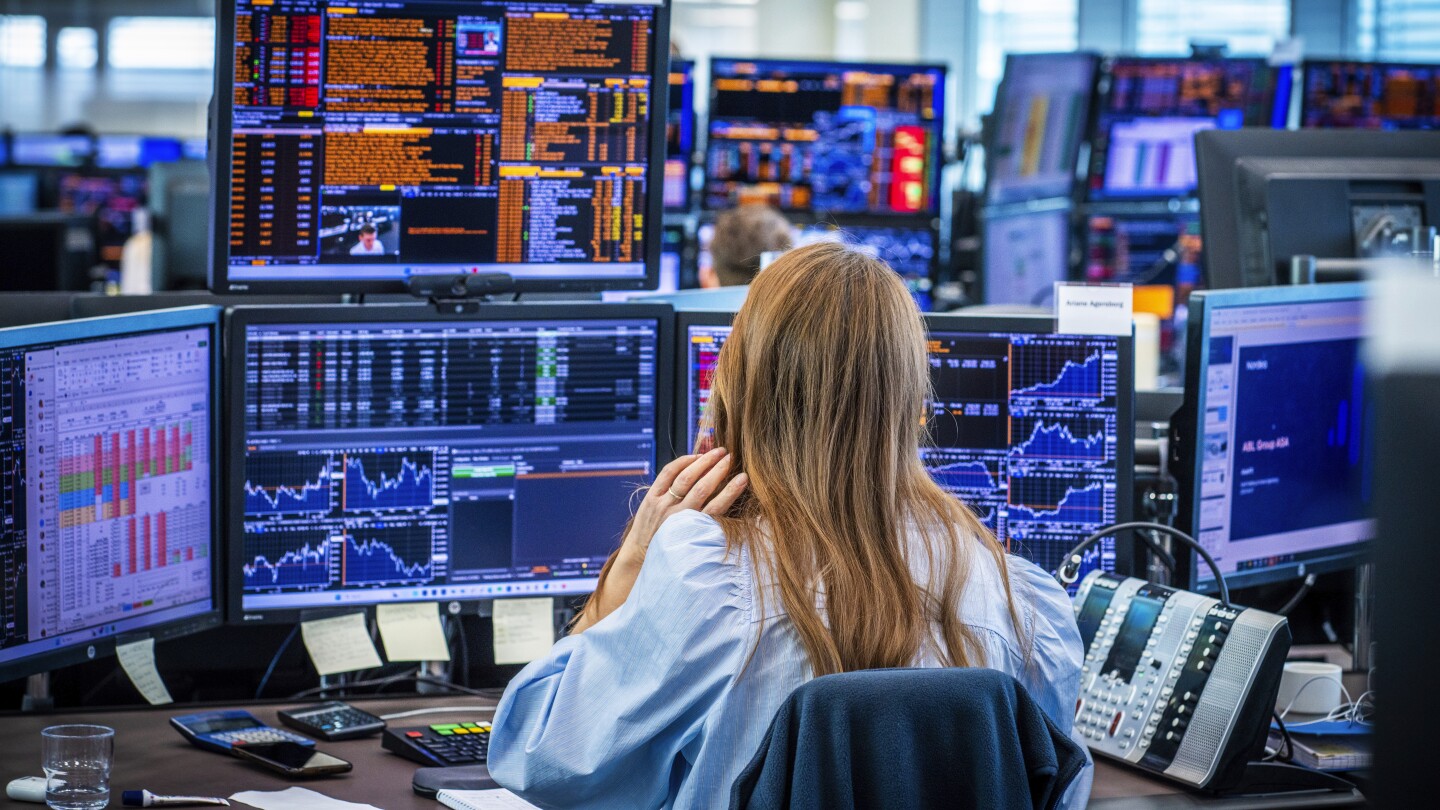
Global Markets Tremble as Trade War Fears Intensify
The global economy is experiencing a significant shake-up, with major stock indices plummeting amidst escalating concerns over a potential full-blown trade war. The Dow Jones Industrial Average, a key indicator of US economic health, has seen dramatic swings, experiencing a substantial drop exceeding 1200 points at one point. This volatility is mirrored in other major indices like the S&P 500 and the Nasdaq Composite, all reflecting a growing unease among investors. The international community is feeling the tremors, as European and Asian markets also witness significant declines, demonstrating the interconnectedness of the global financial system.
The primary catalyst for this market turmoil is the uncertainty surrounding escalating trade tensions. While specific details remain fluid and the situation evolves rapidly, the underlying concern stems from a perceived intensification of protectionist policies. These policies, characterized by tariffs and trade restrictions, create an environment of unpredictability that significantly impacts business planning and investment decisions. Companies operating across international borders face increased costs and logistical complexities, hindering growth and potentially leading to job losses.
This uncertainty is driving investor behavior. Rapid sell-offs, indicative of panic selling, are contributing to the sharp declines seen across various markets. Investors are reacting to the perceived increased risk associated with holding assets in a volatile global economy. The fear is that prolonged trade disputes will negatively impact corporate earnings, slowing economic growth and potentially leading to a global recession. The interconnectedness of global supply chains amplifies the impact; disruptions in one region can trigger a domino effect, affecting businesses and consumers worldwide.
Beyond the immediate market reactions, the long-term consequences of this trade war remain a significant source of anxiety. Businesses may be forced to reconsider their global operations, potentially relocating production or shifting supply chains to mitigate the risks associated with tariffs and trade restrictions. This could lead to job losses in regions heavily reliant on export-oriented industries. Consumers, too, could bear the brunt of the fallout, potentially facing higher prices due to increased import costs.
The international community is closely monitoring the developments, with various leaders and organizations expressing concerns about the potential damage to global trade and economic stability. Diplomatic efforts are underway to de-escalate the situation, but the lack of clear signals about a potential resolution is fueling further market anxieties. The ongoing uncertainty makes it difficult for businesses and investors to make informed decisions, further exacerbating the market instability. Until a clearer path towards resolution is established, the global economy is poised to navigate a period of significant uncertainty and volatility. The current situation serves as a potent reminder of the interconnectedness of the global economy and the potential consequences of protectionist trade policies.
The need for a stable and predictable international trading environment is paramount for sustained global economic growth. The current situation underscores the importance of international cooperation and the potential cost of pursuing unilateral protectionist agendas. The coming days and weeks will be critical in determining the trajectory of the global economy, and the outcome will have far-reaching implications for businesses, investors, and consumers worldwide.



Leave a Reply